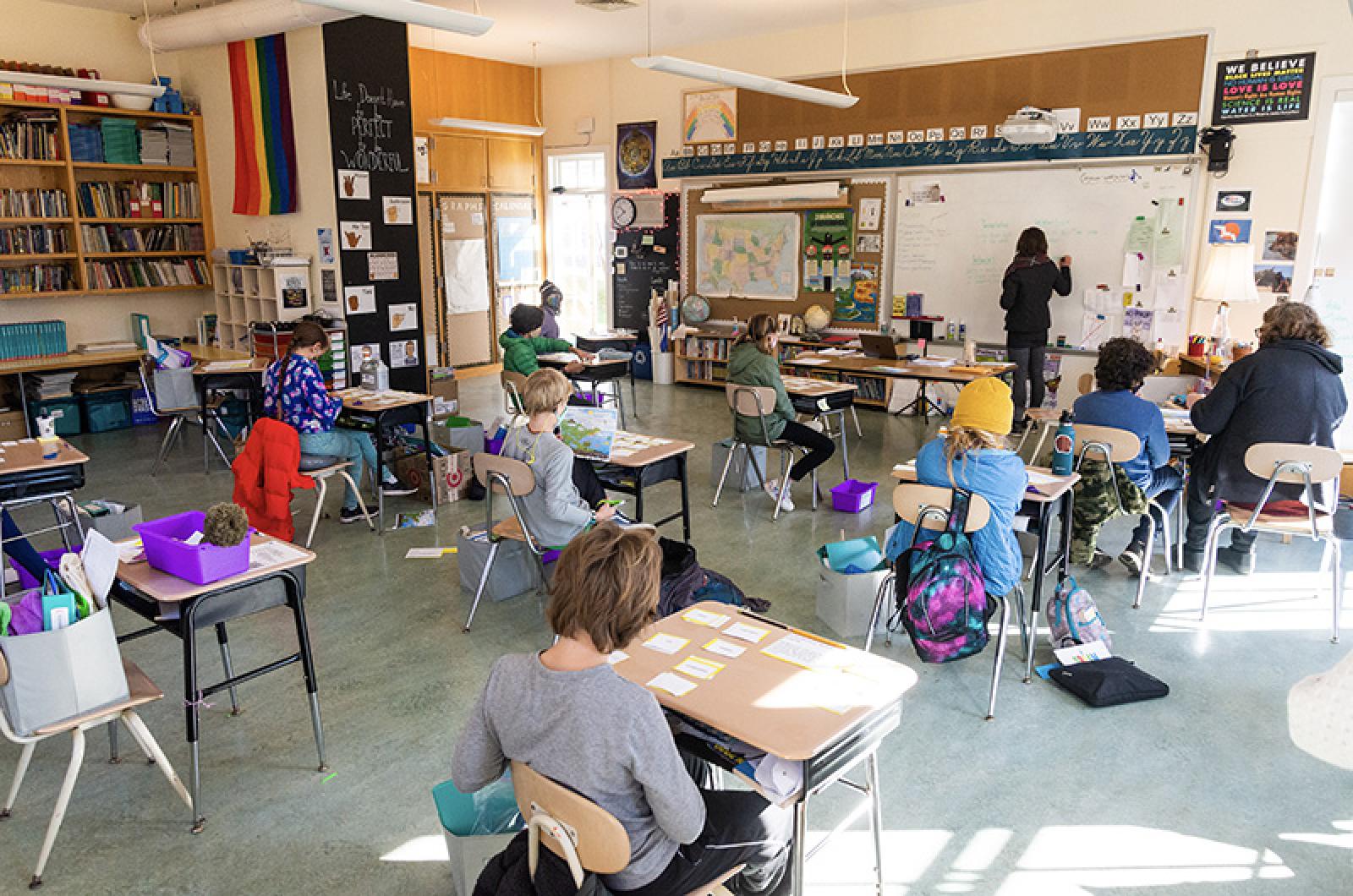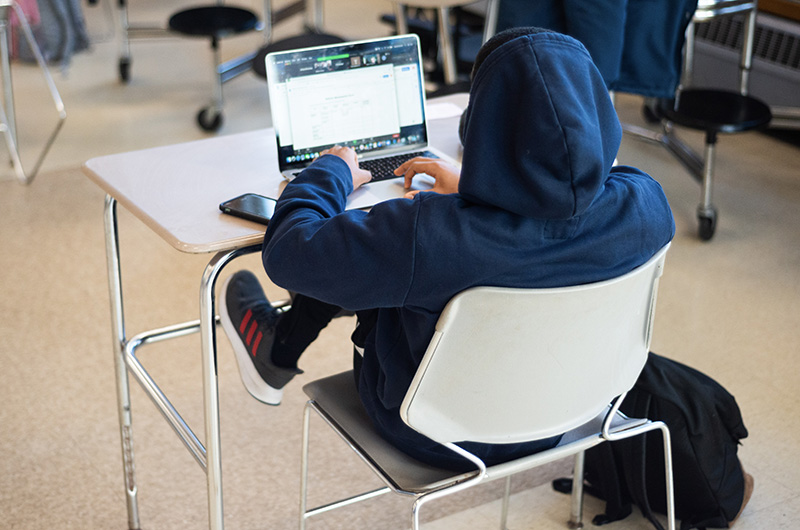In line with a statewide trend, Martha’s Vineyard public school students experienced a dip in MCAS scores following a difficult two years that involved a substantial amount of virtual learning during the Covid pandemic.
“There were drops everywhere,” said superintendent of schools Matthew D’Andrea, following release Tuesday of the results of the 2021 state learning assessment tests. “Less so at the high school than the elementary schools. Being virtual was much more difficult for the younger kids.”
Overall, however, Island scores exceeded state averages for meeting and exceeding expectations, in particular at the regional high school, which even saw a rise over its 2019 numbers in 10th grade ELA, from 55 per cent meeting or exceeding expectations in 2019 to 60 per cent meeting or exceeding expectations in 2021.
“I am so proud of our teachers and administrators, they worked really hard,” said regional high school principal, Sara Dingledy. “We put a lot of attention in keeping kids engaged at a difficult time.”
MCAS — short for Massachusetts Comprehensive Assessment System — tests are administered each year in grades three through eight and to sophomores in high school. The tests were last administered in 2019 and waived in 2020 due to Covid. Many schools around the state advocated for waiving the tests again in 2021 due to the hardships of teaching virtually. In response, the 2021 tests became an abbreviated version, with elementary school students taking a shorter version of the test, and the science portion waived for 10 graders.
Elementary school students had the option of taking the test in-person or virtually, while sophomores were required to take the test in-person.
Island schools participation rates were high, Mr. D’Andrea said.
“Elementary schools students were at or above 95 per cent,” he said. “And high school students were at about 90 per cent.”
Mr. D’Andrea said the tests scores — which in some of the elementary schools revealed a 10 per cent decline or more since 2019 — highlighted a critical aspect of education.
“The personal piece of education with their peers and teachers, that piece was missing,” he said. “We all recognize the importance of that and the pandemic underscored that.”
Ms. Dingledy noted that the data from tests administered during the pandemic will be helpful for educators in evaluating what gaps there might be in student learning after such a tumultuous time.
“We don’t believe in teaching to the test, but we do test to the test,” she said, elaborating that the school creates simulated tests to prepare students and has altered curriculum when the data spoke to a need. “We expanded algebra so we have a two-year sequence option for some students, and algebra makes up the bulk of the math section,” she said, referring to changes made after the 2019 results.
School administrators said they are now digging into the data to see how they can address student needs.
“We will now dive down into each subject area,” Mr. D’Andrea said. “We will be looking at the individual student results to see where we can provide help to the individual.”
At the Martha’s Vineyard Public Charter School, director Pete Steedman agreed with the sentiments of the regional high school, praising educators, administrators and students.
“It was a year characterized by all sorts of difficulty, proving that consistent and in-person learning is essential,” Mr. Steedman said. “But considering all the trials and tribulations, for our teachers and kids to step up and respond as they did is incredible.”
Elementary school students at the charter school exceeded state averages for meeting or exceeding expectations in ELA by 13 percentage points and in science by 10 percentage points. Math scores for this group were seven percentage points below the state average.
Mr. Steedman said he was especially impressed with the science scores, which he felt could have been particularly affected by virtual learning, but also said that the test is just one measure of success for the school.
“MCAS doesn’t define the charter school, it’s just one measure,” Mr. Steedman continued, echoing a familiar refrain from other school administrators. “Our first priority is the emotional and social health of our kids.”







Comments
Comment policy »